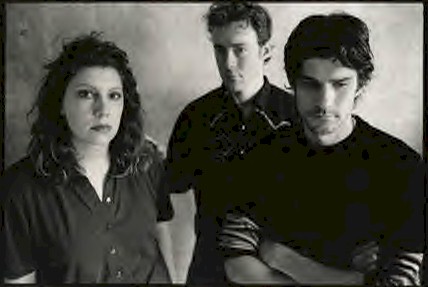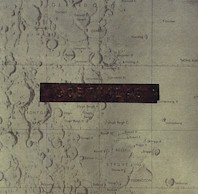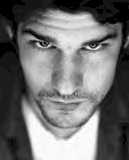|

Low
fear of large spaces
by tim mcmahan
|
|
|
Lazy-i: April 6, 2001 |
Low's
Zak Sally is concerned he's coming off as a whiner in our interview.
"I want to reiterate that I don't view -- in any way -- that I
don't like it when people come to our shows," the bassist said from
his Minneapolis home, having just returned to the states after a
successful (well-attended) European tour.
It seems that there's something about Things We Lost in the Fire,
Low's just-released full-length on Kranky, that's touched a nerve with the
listening public. The trio with Duluth, Minn., origins, headed by
guitarist/vocalist Alan Sparhawk and his wife, drummer/vocalist Mimi
Parker, has spent the last seven years playing its own unique brand of,
well, low-sounding music -- slow, quiet, minimal songs with stark, somber
and beautiful arrangements -- to small crowds of in-the-know indie-music
followers who treasure something special when they hear it.
But suddenly, those crowds have grown to levels that the band isn't
quite used to, or comfortable with.
"Touring behind this record has been a little strange for us,"
Sally said. "Throughout our career, it's always been a slow, natural
progression -- a couple more people buy the records, a few more show up at
the shows. Lately, there have been venues that have been a major step-up
in terms of numbers. I can't say we really know what to do about it. It
feels very different, and we haven't figured it out yet. Playing to 1,000
people is new to us, and strange."
He quickly added his disclaimer: "I'm not saying it's a bad thing.
It's just different in a way that I don't know if we know how to handle
it, yet."
When I half-joked (knowing just how good their new CD is) that it's
only a matter of time until their crowds balloon to 10,000, Sally sounded
concerned. "We've just been invited to a festival in Europe that has
that many people attending, and we have no idea what we're gonna do,"
he said. |
|
|
If you've heard Low's music, it isn't hard
to understand Sally's concern. It's not fist-pumping arena rock. The
band's soothing, almost hypnotic ambient sound laced with an undercurrent
of dark tension is probably best heard alone, or in a dark room with only
a handful of silent listeners. Sally says he isn't sure how well their
stark lullabies translate to Standing Room Only crowds.
"We get
comments from people after the show, telling us we sound great," he
said. "But it's pretty nerve-wracking for us. It gets pretty tense.
It could be great or it could be horrible. Again, I want to reiterate…"
The sudden surge of interest is probably due to Low taking a slightly
different tact on their new CD. Sparhawk and Parker, along with the band's
first bassist, John Nichols, formed the band in 1993 partly as an
experiment in playing quiet, minimalistic music. Sally, who had played in
a "punk" band with Sparhawk in the late-'80s, was added as
permanent bassist in '94.
Their music centers on Sparhawk and Parker's ghostly harmonies, which
are accompanied by sparse sounds -- guitar, bass and a simple drum set.
Low, Sparhawk says, makes music in which the spaces between notes are as
important as the notes themselves, and perhaps even more so.
But on their new CD, the spaces are just as likely to be filled with a
fuzz bass or groggy rock guitar. Sure, the tunes are still slow, but not
quite as slow or quiet or minimal as before; and because of that, the
music is reaching a larger audience. Sally says their fuller sound on Things
We Lost in the Fire wasn't attempted consciously.
"For us, songwriting is a process of taking a look at what we've
got, what we do with it, and how we treat it," he said. "It was
very strange this time. The songs Alan came to the band with… we thought
it would be shortchanging them if we tried to make them slow, minimal Low
songs. We just sort of tried to let them go their own direction."
And this blurring of the band's defined slow-core sound is all right
with Sally. "Personally, the longer we continue doing this, the less
important our definition becomes for me," he said. "Initially,
we very much were the slow, quiet, minimal band, and I think we
experimented and played with that a lot. We've become a band that has this
special language and can spell anything we want with it, whether it's slow
or fast." |

Things We Lost in the Fire
"It
was very strange this time. The songs Alan came to the band with… we
thought it would be shortchanging them if we tried to make them slow,
minimal Low songs."
|
|

"If we were still making that
first record, we would feel horrible and we'd probably quit."
|
What hasn’t changed is the stark quality
of Sparhawk's lyrics. For example, opening track "Sunflower":
When they found your body
Giant X's on your eyes
With your half of the ransom
You bought some sweet, sweet, sweet
Sweet sunflowers
And gave them to the night
I suggested that the lyrics could be viewed as being a bit depressing.
Sally protested. "I don't think it's depressing at all," he
said. "'Sunflower' is really a happy song. I wouldn't describe the
lyrics as dark or morose. Alan likes to use the word 'sober,' -- not in a
drinking sense -- to describe them. They're serious lyrics about pretty
serious things, not girls and cars. I don't think we're gloomy or sad.
There's as much joy in our music as sorrow."
Maybe, but it's hard to see the joy or ignore the obvious imagery in a
song like "Embrace," with the lyrics:
Breathing in time, so hard to trace
Crushing your skull with my warming embrace
It won't last -- hold on fast
It won't last -- hold on fast
Sung by an angelic-voiced Parker over a forlorn violin and a lost,
barely audible thump-thump-thump bass drum, it's impossible not to feel
sad or lonely and yet, you can't help but listen.
Sally says part of the CD's irresistible quality is due to Steve
Albini's pristine recording. Albini, who also produced the band's previous
album, 1999's Secret Name, is better known for his work with some
of punk rock's seminal bands, including Nirvana, The Pixies and Silkworm.
Sally said the band told Albini what they had in mind for the new record,
and "he was excited."
"Steve often describes himself not as a producer, but as a
recording technician," Sally said. "He's good at recording sound
waves in space and you can absolutely rely on him in that respect. At the
same time, he likes weird, strange sounds, and we do, too.
"This is our experimental record," Sally said. "Every
record is an experiment for us in that we're trying to get better at what
we do and define new things. If we were still making that first record, we
would feel horrible and we'd probably quit. I'm glad we haven't because we
found a lot of interesting things in our sound."
Back to 
Published in The Omaha Weekly April 4, 2001. Copyright ©
2001 Tim
McMahan. All rights reserved. |
|
|

![]() webboard
interviews
webboard
interviews